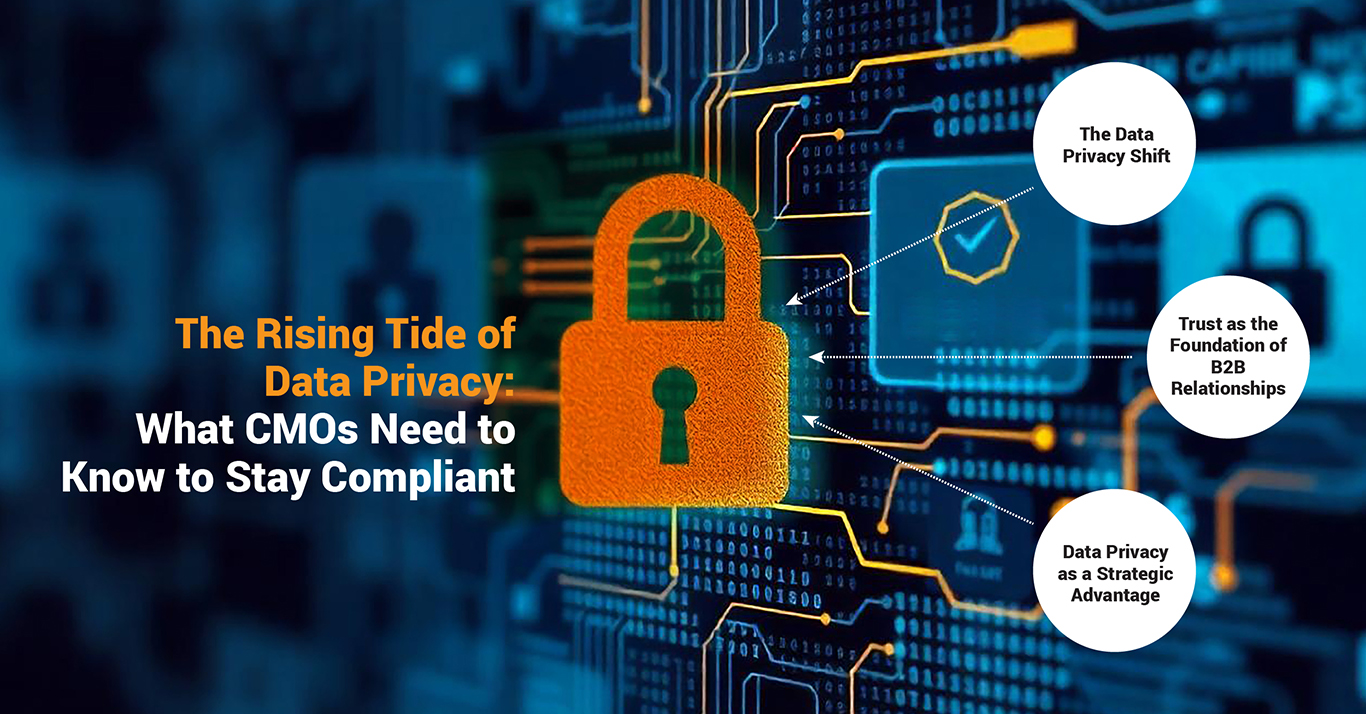
20 Sep The Rising Tide of Data Privacy: What CMOs Need to Know to Stay Compliant
Introduction
Are your marketing strategies up to par with the evolving data privacy evolution? As rules become stricter and customers demand for more privacy, CMOs are facing new challenges. How can your organization win trust, avoid regulatory risk, and still flourish in this data-driven age?
In this blog, we’ll navigate through the critical changes in data privacy that are transforming B2B marketing, sharing insights on how to maneuver through these intricacies in order to protect the business.
The Data Privacy Shift
Managing B2B data that the B2B marketers are perceiving from a different angle has become an essential element of making marketing strategies in the current digital world.
On the other hand, much as marketing continues to grow towards being more data driven, the issue of privacy also remains a key concern.
For B2B marketers, it should be noted that this increasing culture of privacy has great effects – not only from legal perspectives but also from that of customers’ confidence. Historically, B2B businesses may not have placed much importance on the data they obtained and processed compared to B2C businesses. Sadly, those lines are now blurring. Regulators are expanding their jurisdiction, and business customers are becoming more educated about their data rights.
Traversing the highly intricate regulatory landscape in the light of varying statutory requirements is easier said than done. Non-compliance with these regulations may attract large fines as well as a stain on the reputation of the firm which may lead to risky business practices with clients.
So, having a deep grasp of worldwide privacy laws—and how they relate to the company—is crucial to remain in front.
A forward-thinking strategy involves weaving privacy-first methods into marketing procedures. This calls for an audit of customer data collection, storage, and sharing practices. Marketing teams should collaborate with legal and compliance departments to make sure their plans match current rules. Also, using tools like consent management platforms (CMPs) can help marketers streamline compliance and steer clear of manual mistakes.
Trust as the Foundation of B2B Relationships
In a time when companies are expected to safeguard their customers’ data, openness and trust have become key factors. Today’s business clients are more picky placing importance on how their partners handle sensitive info. CMOs must create a data-privacy mindset not just to follow rules, but to build stronger client trust and loyalty.
Embracing a privacy-first marketing approach means going beyond just following the rules. For instance, marketers can use data reduction strategies to make sure they gather necessary data and give clear brief messages about how they’ll use client data. This approach not only meets legal requirements but also shows that the business values privacy, which can boost relationships and improve brand image.
Data Privacy as a Strategic Advantage
By making data privacy a key part of their marketing plans, CMOs can use it to gain an edge over competitors. Businesses that share their privacy methods and let customers decide how their data gets used stand out from the crowd. Privacy-friendly approaches, like zero-party data (where customers choose to share their info) and clear opt-in choices, help build stronger connections and customer loyalty. These ways give control back to customers creating a relationship based on trust that will lead to better results in the long run.



No Comments